Thai government sterilises monkeys left starving during coronavirus lockdown after terrorising city
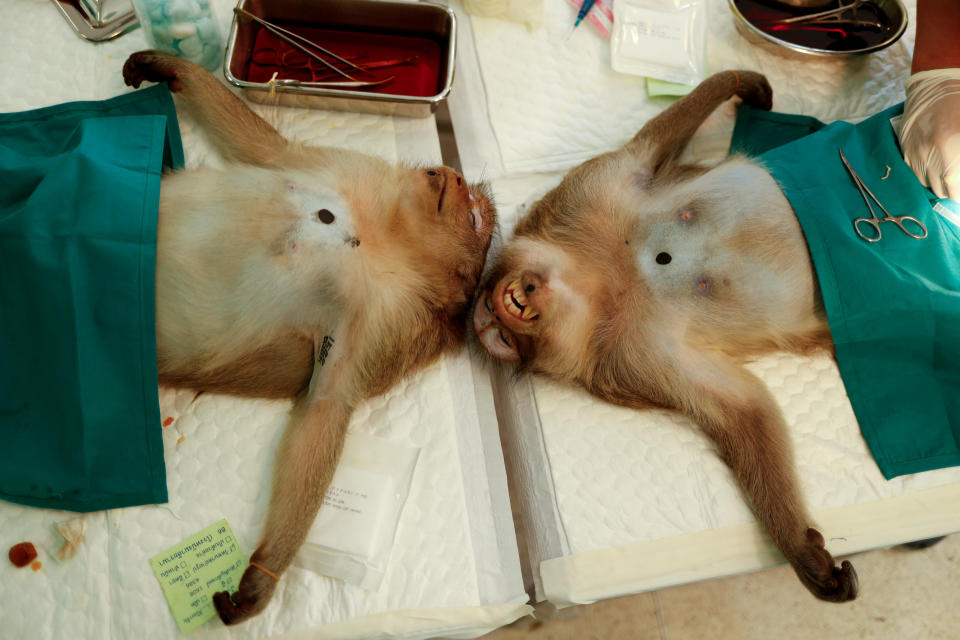
Thailand is sterilising hundreds of monkeys because coronavirus has left them starving and caused them to act aggressively towards local residents.
Lopburi province is a region famous for its 2,000-strong macaque population, which draws in thousands of visitors every year.
Tourists generally feed the monkeys and take selfies with them, but since the country went into lockdown in early April the primates have found themselves starved of food.
“They're so used to having tourists feed them and the city provides no space for them to fend for themselves,” said Supakarn Kaewchot, a government veterinarian.

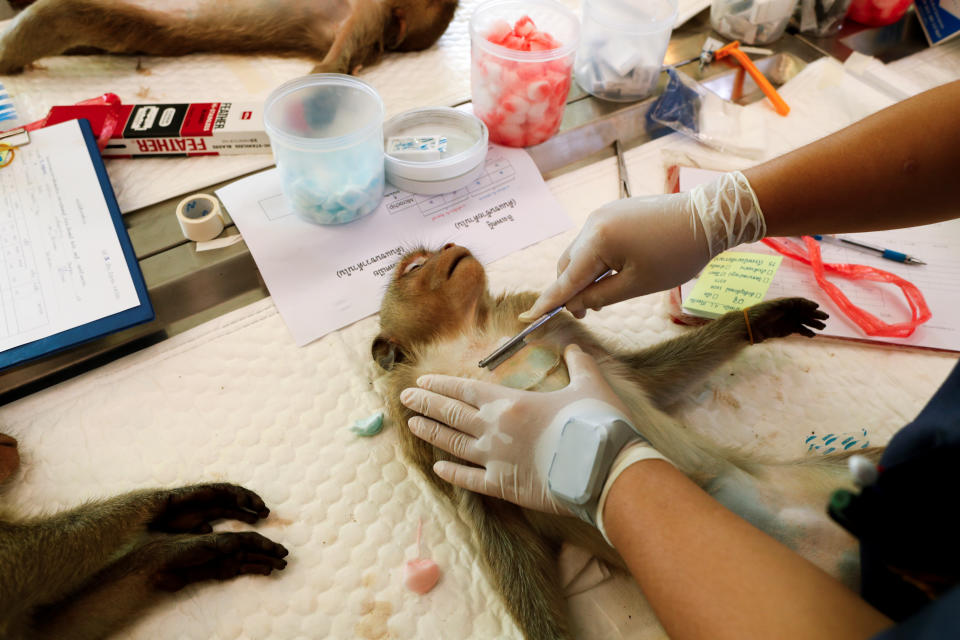
“With the tourists gone, they've been more aggressive, fighting humans for food to survive,” she told Reuters.
“They're invading buildings and forcing locals to flee their homes.”
Locals have also noticed the dramatic effect the lack of tourism has had on the monkeys.
“It’s the summer, so usually we see a lot of tourists, but now because of the outbreak there’s so few that the markets are very quiet,” local resident Sasaluk Rattanacha said.
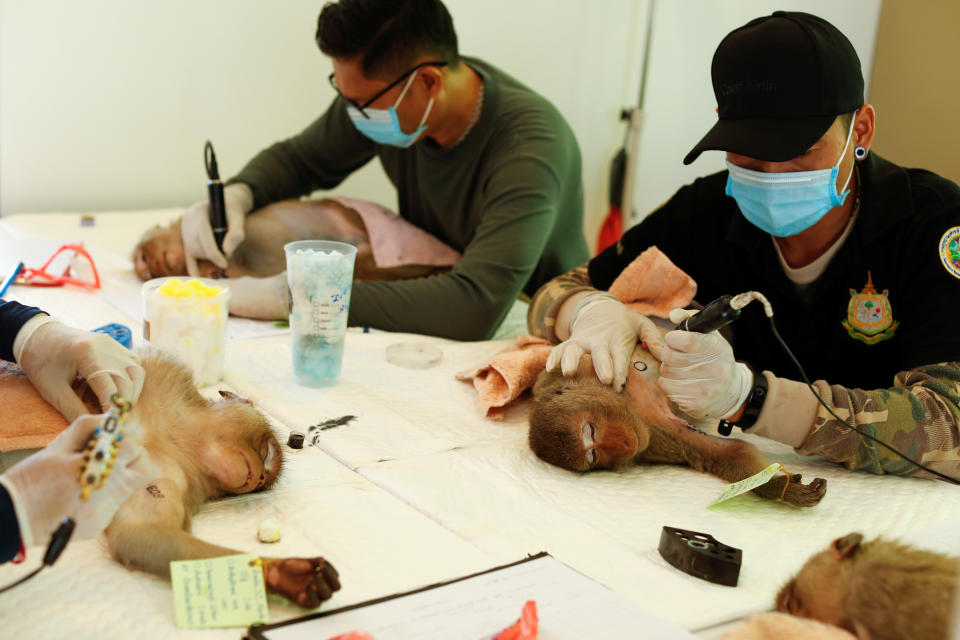
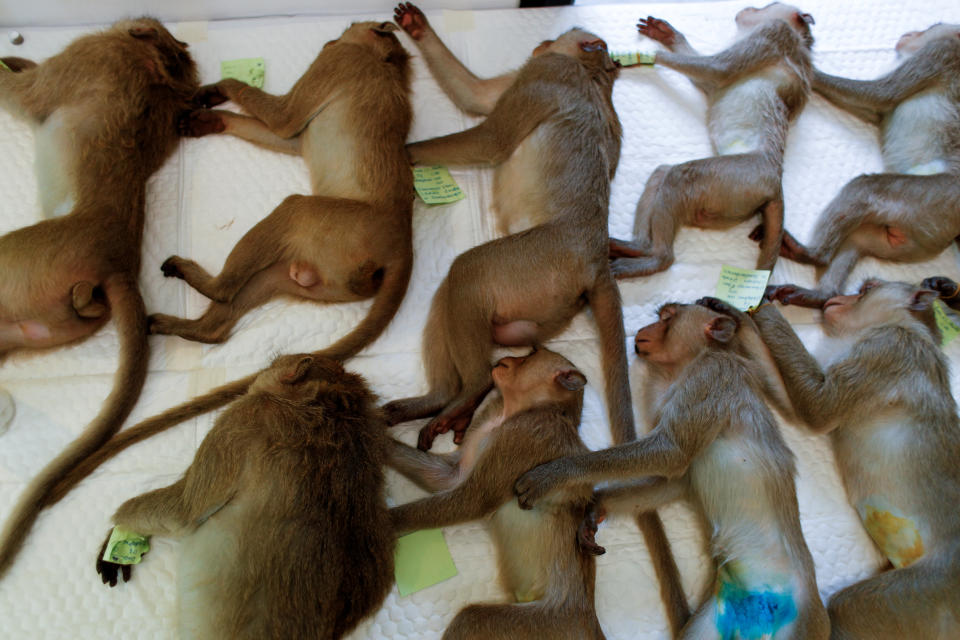
“Not enough tourists come to leave food for the monkeys at Prang Sam Yod [temple].”
Since the monkeys no longer live in a wild environment, they are not used to hunting for food and have not adapted well to the problems caused by the pandemic.
To stop them causing trouble, authorities have placed big cages around the city with tantalising fruits in them, hoping to lure around 300 monkeys for sterilisation.
Monkeys which are caught are sedated, shaved and tattooed with a unique reference number under their arms.

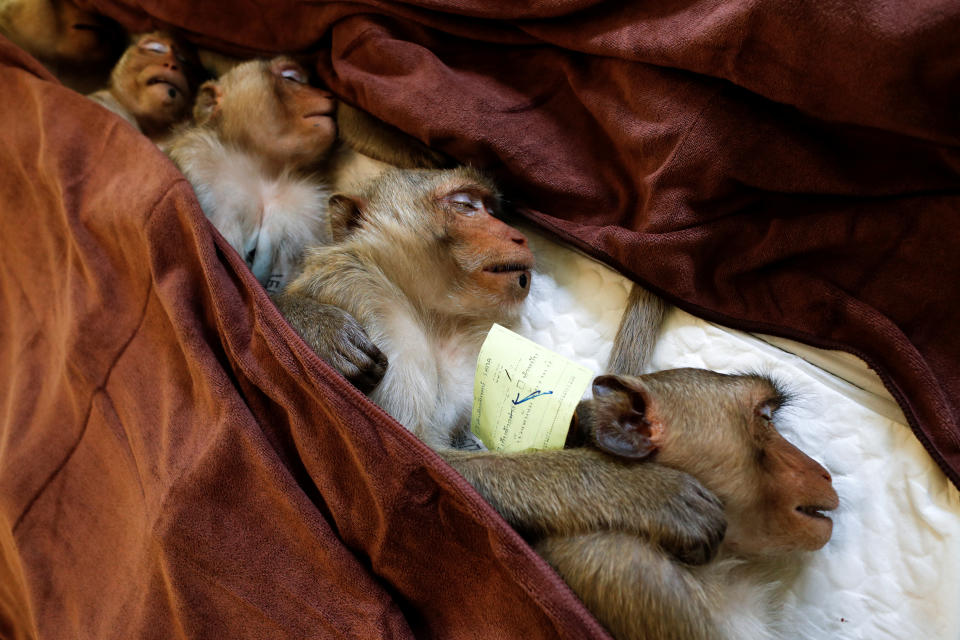
They are then taken back to their tribe after being given a night to recover from the operation.
The region’s authorities say they are hoping to sterilise 500 of the macaques over the next two months.
Supakarn said the sterilisation would pose no threat to the monkey population and the aim was just to slow down the rate of its urban growth.
“We're not doing this in the wild, only in the city areas,” she added.
Thailand has so far recorded just over 3,000 coronavirus cases and 58 deaths in total.
Coronavirus: what happened today
Click here to sign up to the latest news, advice and information with our daily Catch-up newsletter
Read more about COVID-19
How to get a coronavirus test if you have symptoms
How easing of lockdown rules affects you
In pictures: How UK school classrooms could look in new normal
How public transport could look after lockdown
How our public spaces will change in the future
Help and advice
Read the full list of official FAQs here
10 tips from the NHS to help deal with anxiety
What to do if you think you have symptoms
How to get help if you've been furloughed

 Yahoo Finance
Yahoo Finance 
